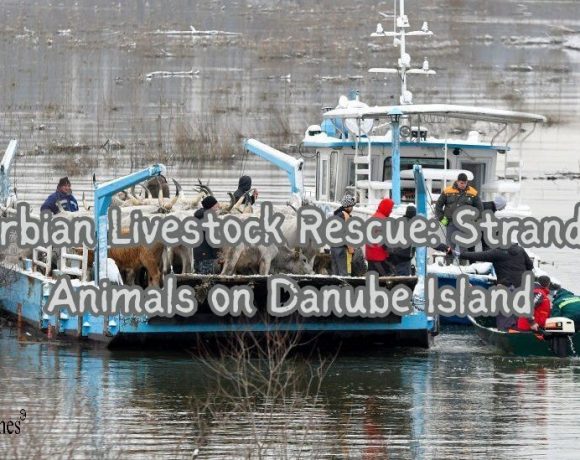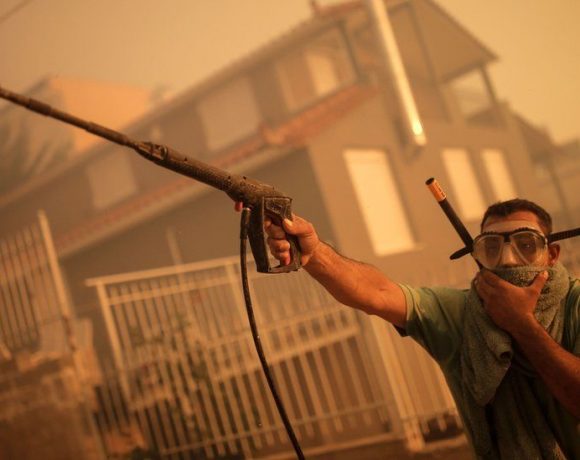
An operation is in progress to rescue around 200 cattle, calves, and horses stranded on Krcedin island in the River Danube, near Belgrade, Serbia. Rising water levels last week prevented the livestock from returning to shore. The evacuation, which began on Tuesday, has saved approximately 60 animals so far. Harsh weather conditions, including freezing temperatures and concerns about starvation, have intensified the urgency of the rescue mission.
Krcedin island, located on the left bank of the Danube, experienced a sudden rise in water levels due to melting snow caused by unseasonably mild weather in late 2023 in the Balkan region. The island is situated 3km from the shore and approximately 50km upstream from Belgrade.
Farmers had been appealing for days to have their livestock rescued as conditions deteriorated. On Tuesday, a rescue team comprising the Serbian military, the emergencies department, the forestry agency, and local citizens used a raft to transfer about 60 animals to safety. However, further attempts faced setbacks, including the replacement of the first raft due to missing railings and the breakdown of its replacement after only two runs.
Environmental group Eko Straza reported that the stranded cattle were exhausted, having lost up to 50kg of their weight. A new boat was hired to continue the rescue on Wednesday. Transporting dozens of wild horses, which are not accustomed to human contact, posed additional challenges.
With freezing conditions and the threat of hunger, speed has become crucial in the evacuation. Cattle breeder Milenko Plavsic expressed concern that some of his animals had already died, and the remaining ones were at risk. He explained that, in a normal year, the animals would return home by wading through shallow waters for 10km, but the high water levels have prevented grazing.
Picture Courtesy: Google/images are subject to copyright

